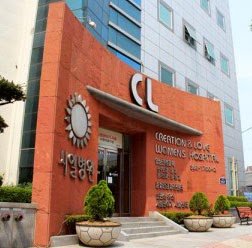Treatment of prostate cancer in Korea
Effective treatment of prostate cancer in Korea helps patients permanently get rid of this pathology. Specialists of the leading university clinic "Kenghi" specialize in modern methods of diagnosis and treatment of oncological diseases, including prostate cancer. The professors of the Kenghi Clinic open up unlimited possibilities of advanced medical technologies to their patients, guaranteeing high professionalism, safety, comfort and excellent attitude.
What is prostate cancer?
Prostate cancer is a malignant tumor that grows from alveolar cells of the glandular epithelium. Despite the fact that this type of cancer is not distinguished by its rapid growth and early metastasis, its late diagnosis can lead to the spread of the disease (usually with bone metastases), which greatly complicates the treatment and reduces the likelihood of complete recovery. However, modern methods of prostate cancer treatment in Korea, successfully practiced at the Kenghi University Clinic, make it possible to effectively treat a tumor even at advanced stages.
The main symptoms of prostate cancer are:
Progressive urination (weakening of the jet, frequent urge to urinate, feeling of incomplete emptying)
Bleeding during urination
presence of blood in the semen (sperm)
erectile dysfunction
impossibility of urine
incontinence and involuntary urine small portions
Complications of the urinary tract and kidneys associated with chronic urodynamic disorders - recurrent infections and renal insufficiency
Signs of disease progression - pain in perineum and pelvis (during germination of a tumor in adjacent tissues), pain in the bones, back, pathological fractures and a dangerous increase in blood calcium (with bone metastases), as well as signs of metastatic lesions of other organs.
Prostate Cancer Diagnosis
Among the main methods of modern diagnostics of prostate cancer in Korea, practiced at the Kenghi University Clinic, it is important to note:
A blood test for tumor marker level (PSA) is the main method for early diagnosis of the disease, as well as an important parameter for monitoring the effectiveness of treatment.
Transrectal ultrasound, as well as MRI of the pelvic organs will allow to judge the size of the tumor and the involvement of neighboring organs in the process.
Ultrasound of the prostate gland not only determines the volume of the prostate gland, but also to find pathological names in the prostate. In addition, for prostate cancer. An ultrasound scan helps to determine if the process has gone into the lining of the prostate gland, adjacent seminal vesicles, and to determine the stage of the process. Biopsies are performed with transrectal ultrasound.
A biopsy of the prostate gland with subsequent histological examination of the samples will help establish an accurate diagnosis and determine the hormonal dependence of the tumor, which will help in the correct choice of treatment. A biopsy is performed by a minimally invasive method using aspiration of tumor fragments with a thin needle.
Cancer spread is evaluated using CT scan, PET-CT scan, MRI of the prostate gland and isotope bone scan.
Treatment of prostate cancer in Korea.
The most advanced methods of prostate cancer treatment are used in the University Clinic. Korea, among which are:
Radical removal of the prostate gland allows you to completely remove the tumor, as well as regional lymph nodes, preventing the development of disease recurrence. Experts at Korean clinics prefer robotic operations on the prostate gland, which significantly increases the effectiveness of the procedure and reduces the likelihood of complications, maintaining the sensitivity of nerve endings. When applying this innovative cancer treatment method in Korea, the innervation of the pelvic organs is fully preserved, preventing the development of neurological disorders, including erection problems in patients after the removal of the tumor.
Radiation therapy is used as a primary or secondary treatment.
Chemotherapy is used for the common form of cancer alone or in combination with other treatments.
Hormone therapy is effective in some forms of the disease and allows you to stop the growth of the tumor even in the presence of distant metastases.
Symptomatic treatment of prostate cancer is aimed at reducing pain syndrome and reducing the level of calcium in the blood, which increases critically during bone decay. The
professional approach of the Kengha University Hospital will help to cope with severe disease and quickly return to a normal lifestyle.
adenoma (benthic increase) of the prostate.
examination
- Prostate ultrasound
- blood test - PSA
- Consultation on the symptom
The treatment is carried out on the symptom.
As a rule, drug treatment.
If it increases greatly, it is difficult to even walk on a small one — an operation is needed there.
If PSA increases, then a prostate biopsy will need to be done.
Prostate biopsy costs $ 3,000. Hospitalization for 2 days. The result takes 7 days.
Survey Operation
1. MRI of the prostate
2. bone scan
3. PET CT
4. blood test
(about $ 3500 - $ 4000)
I recommend to bring the glass (biopsy).
because of his age, he needs consultation with a cardiologist, a neuropathologist, etc.
The operation is performed by a robot (davinch).
The cost of the operation - $ 26,000 (with one ward for 11 days.)







özel ambulans
ReplyDeletelisans satın al
minecraft premium
uc satın al
en son çıkan perde modelleri
en son çıkan perde modelleri
yurtdışı kargo
nft nasıl alınır